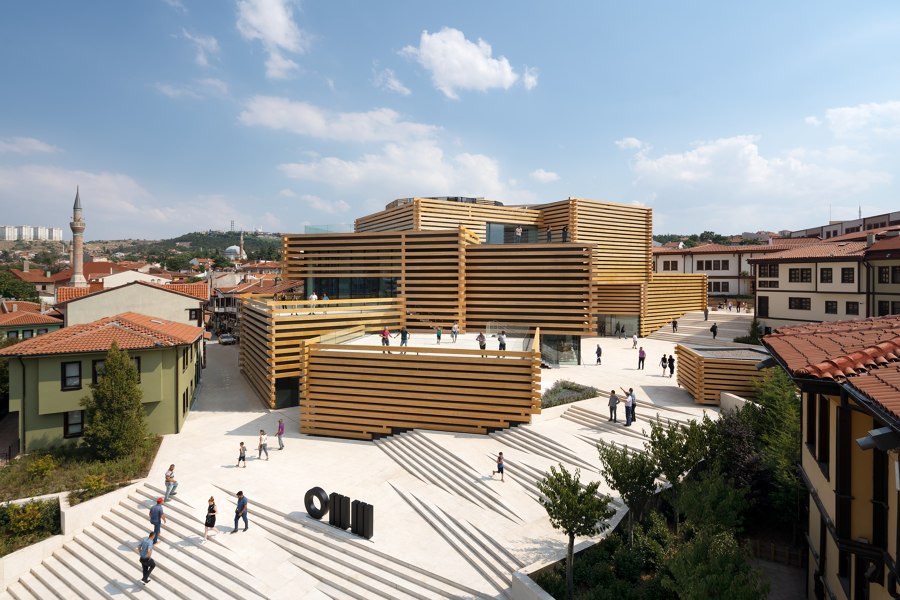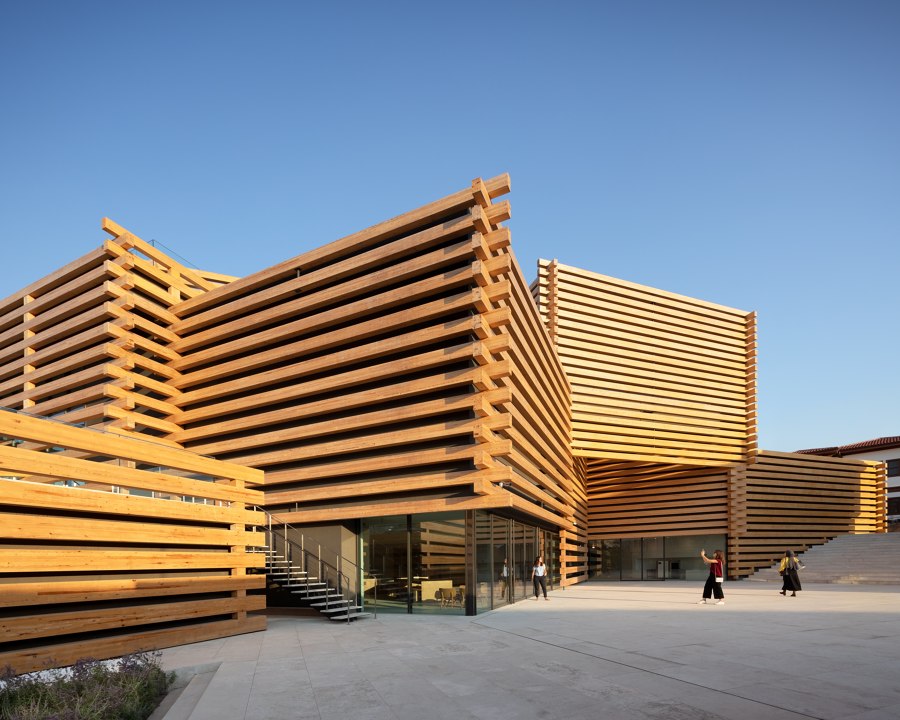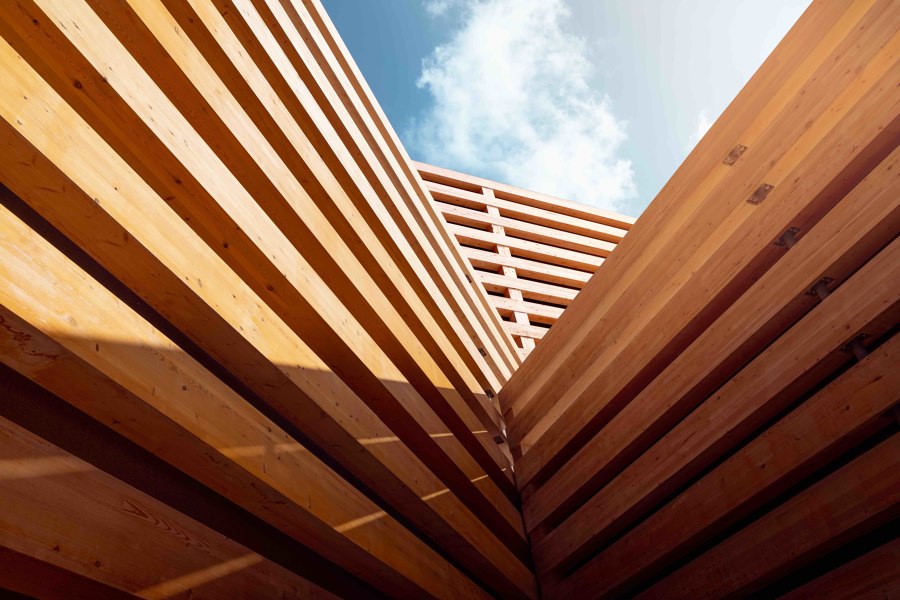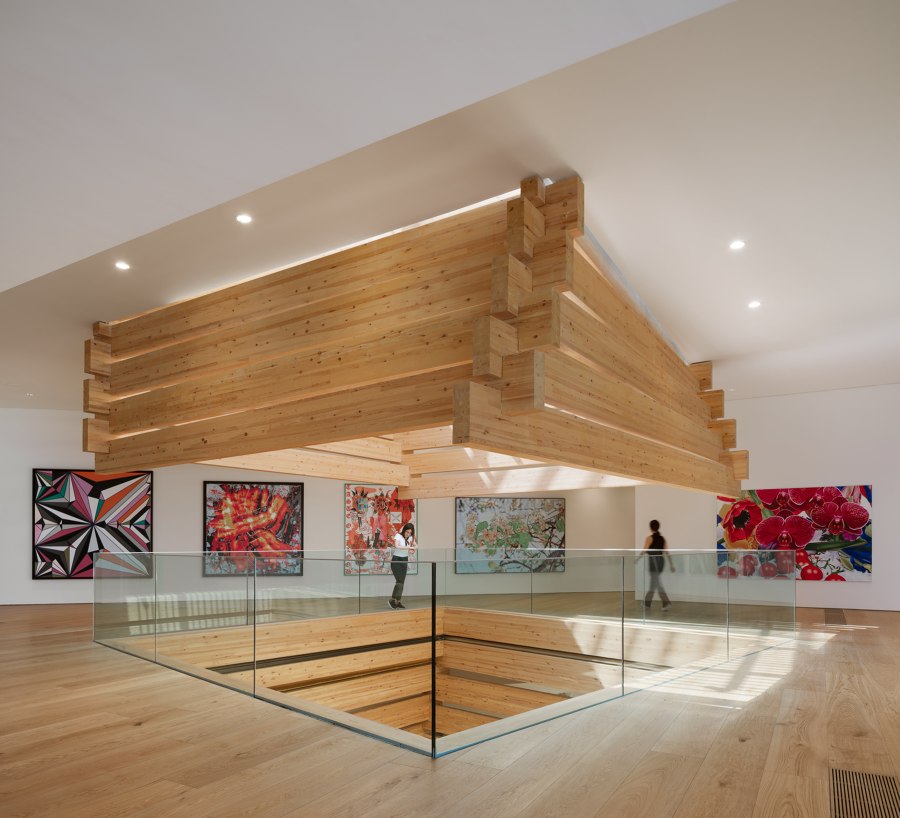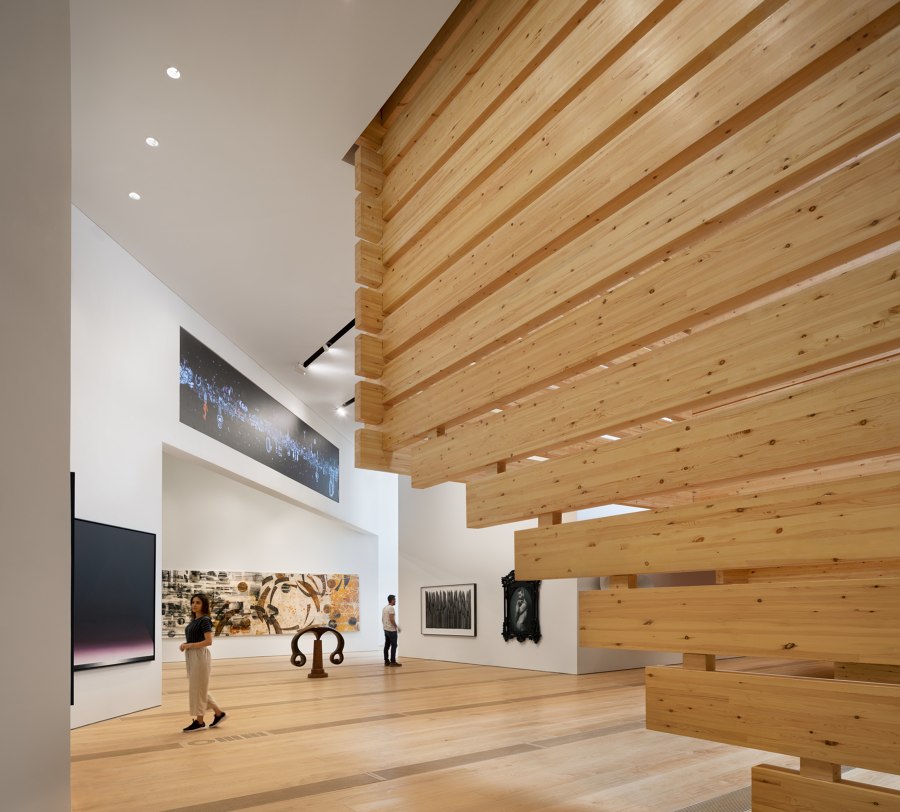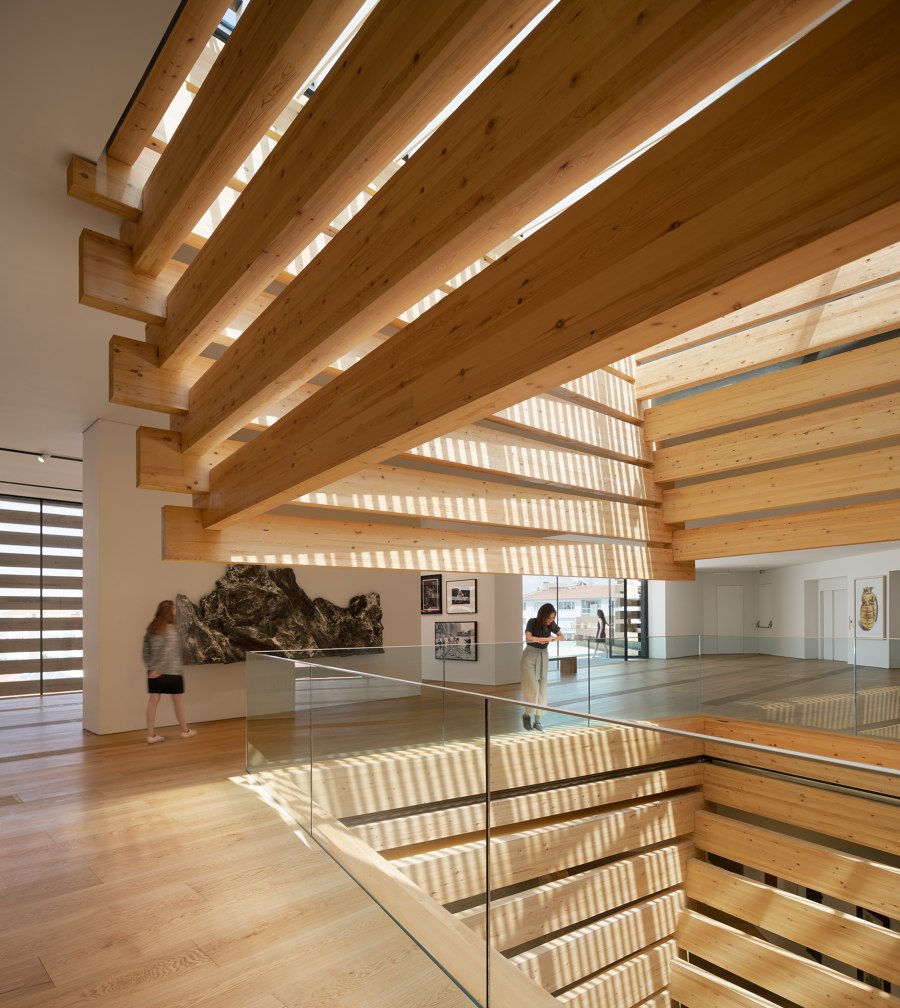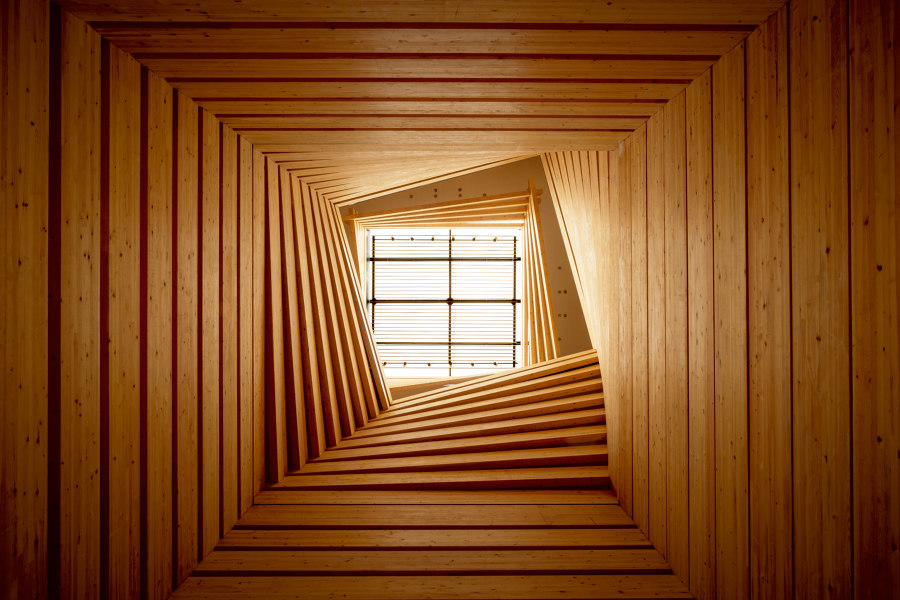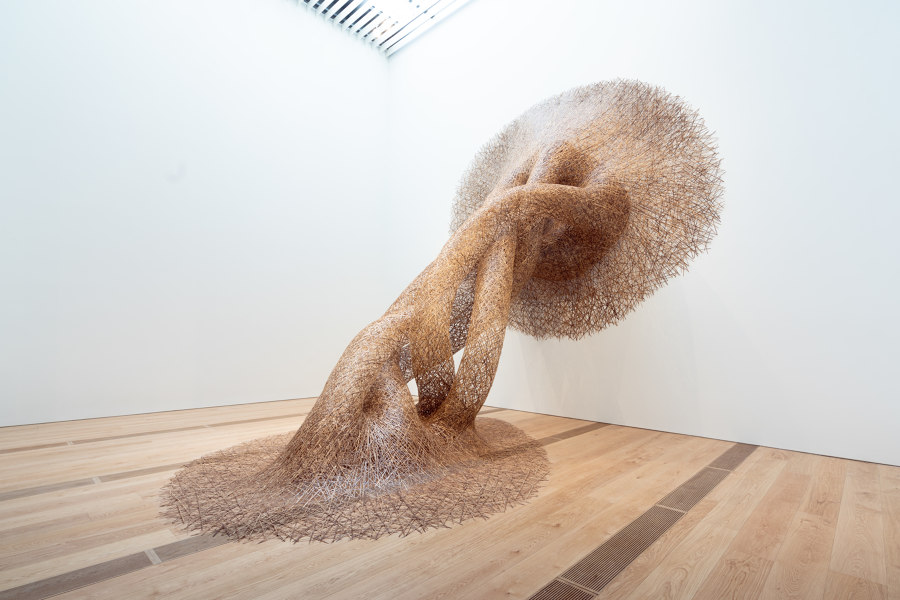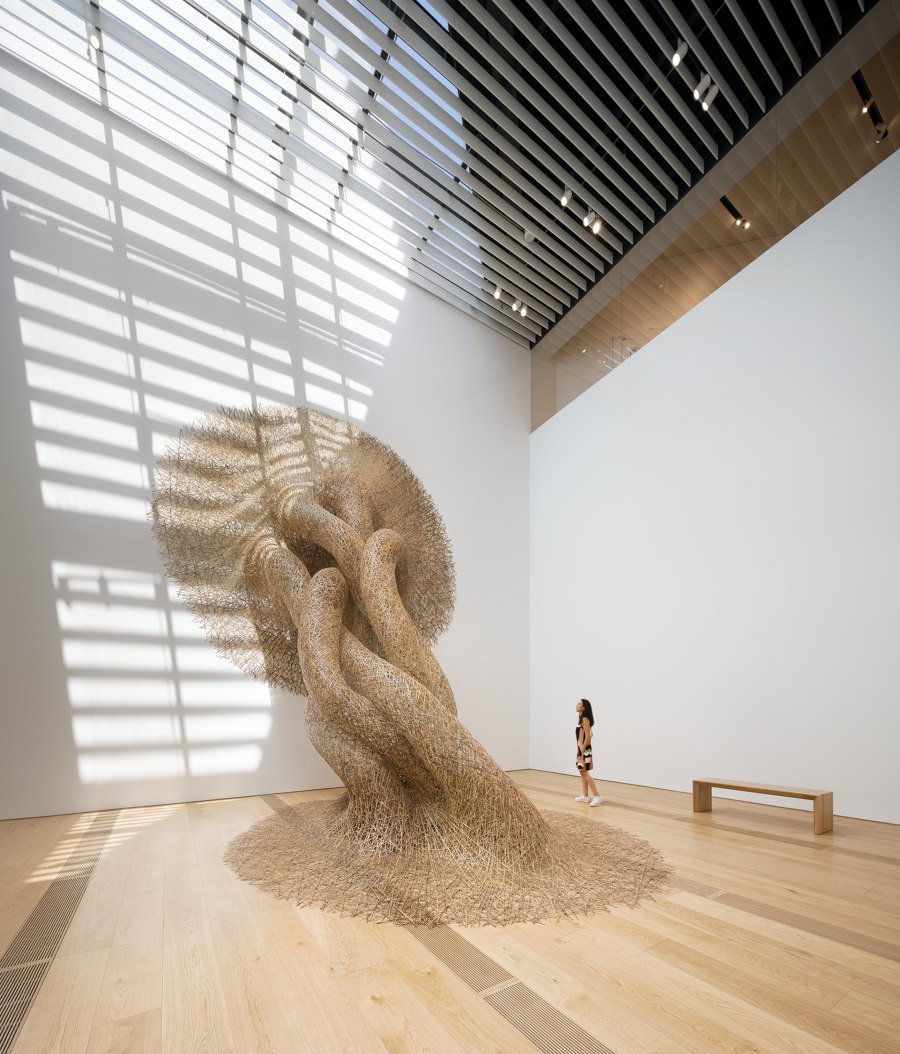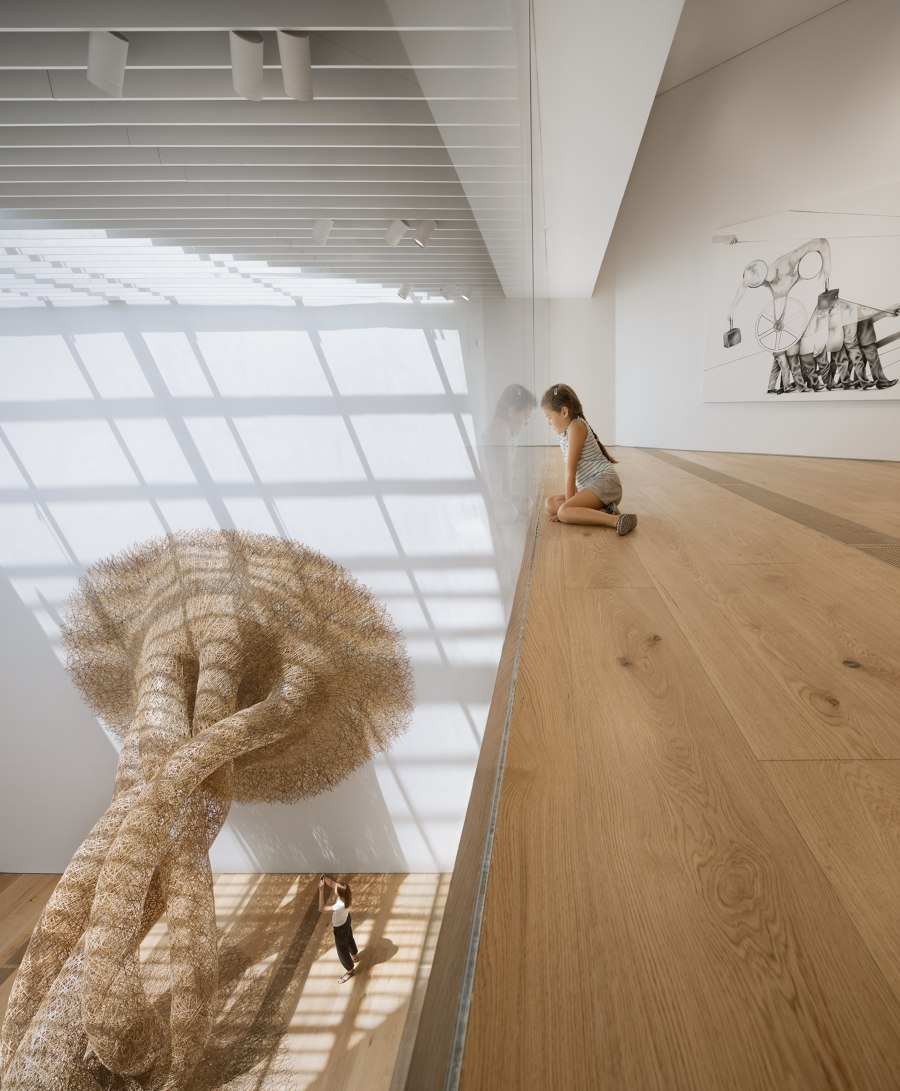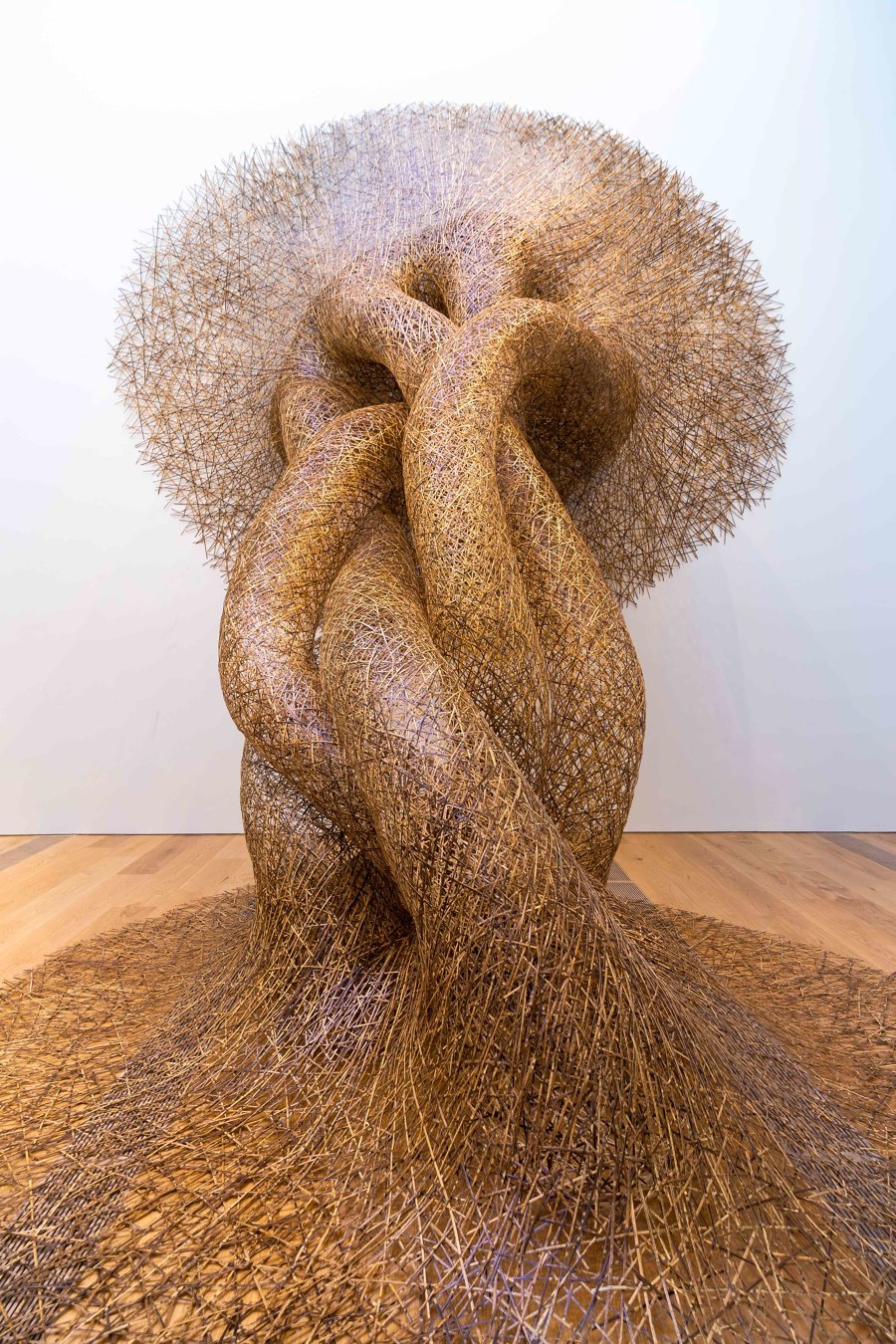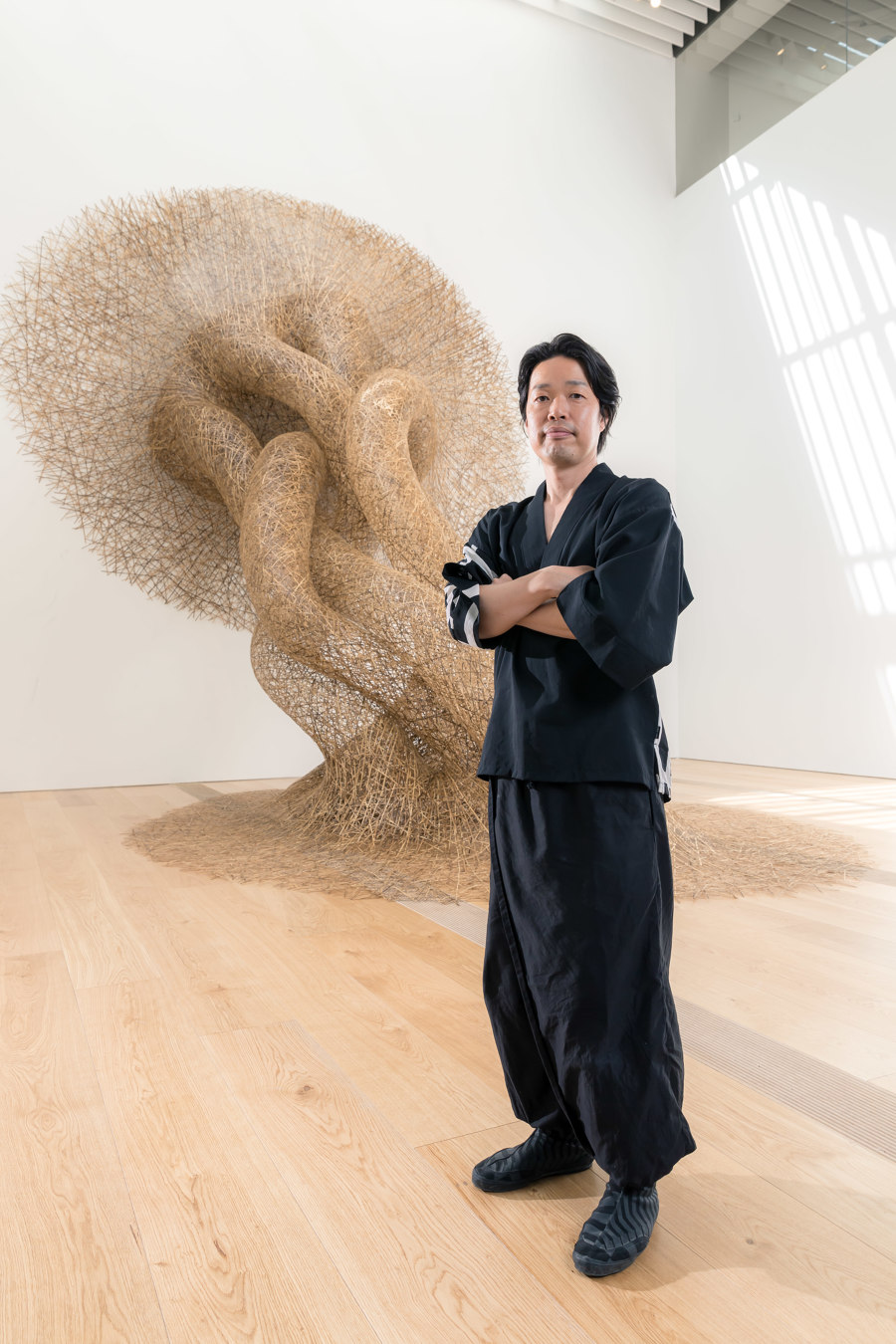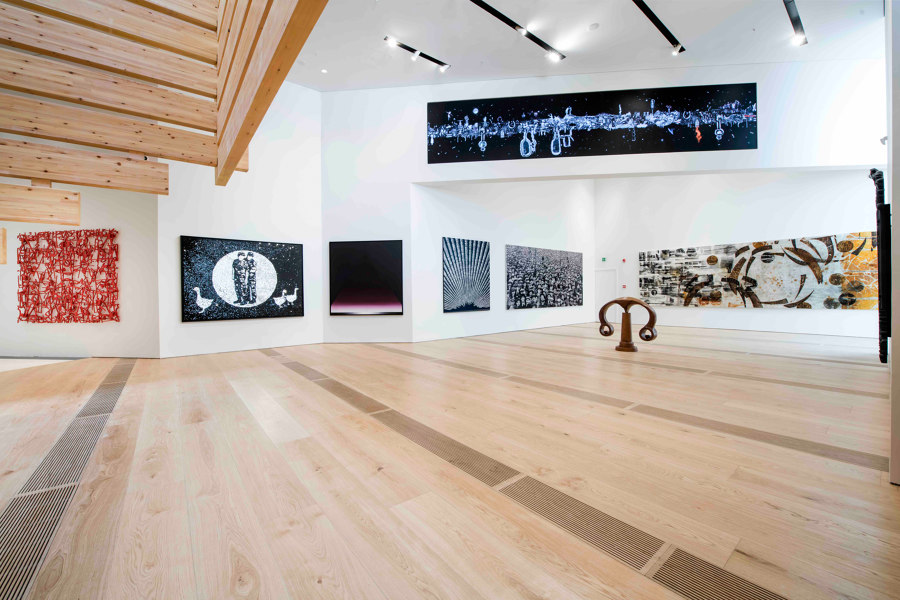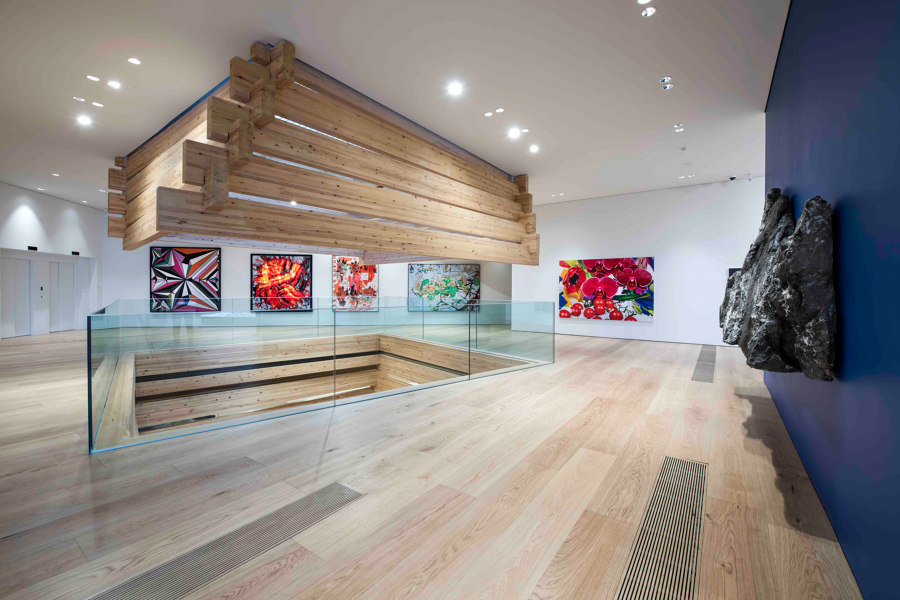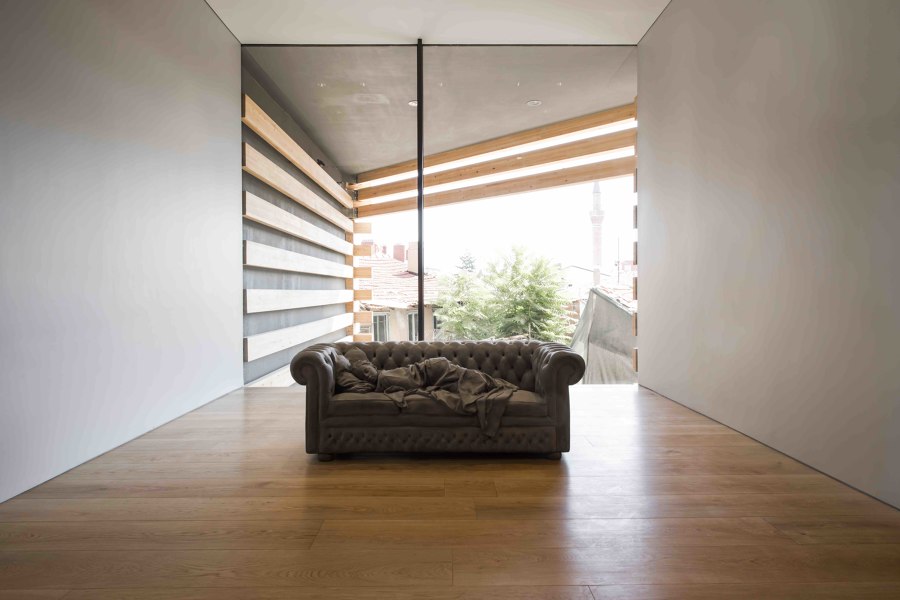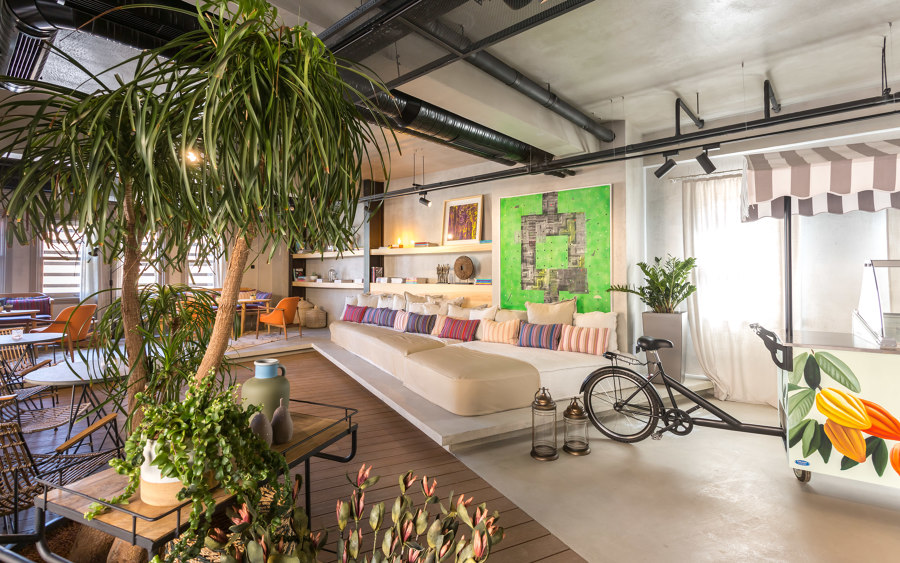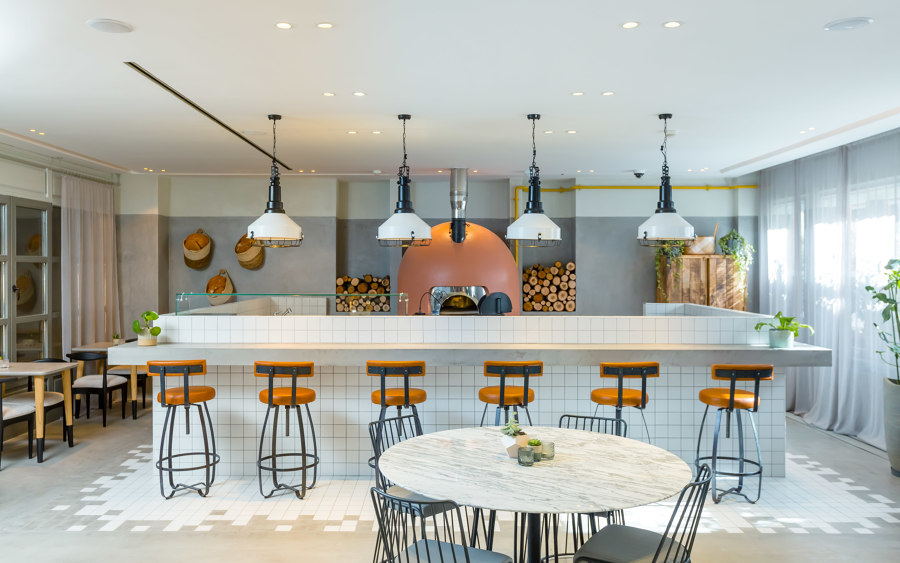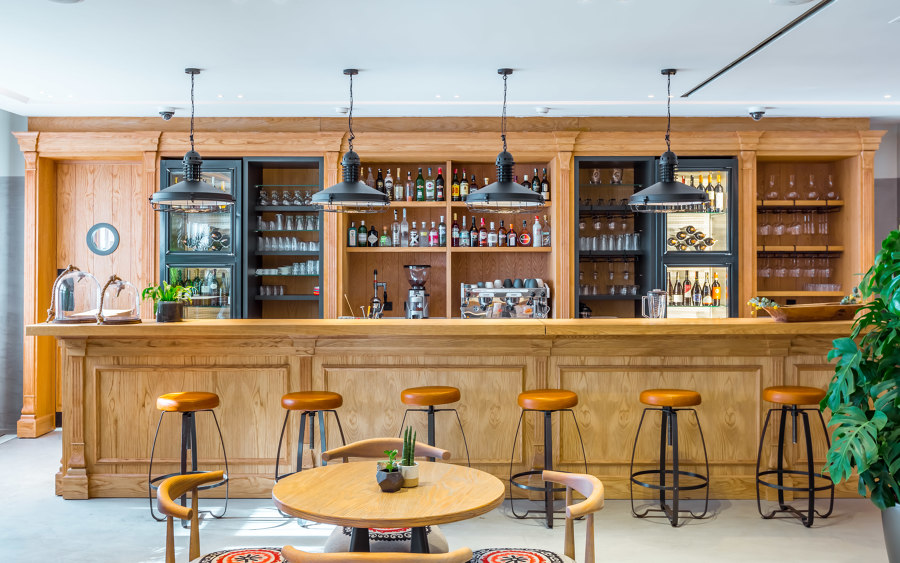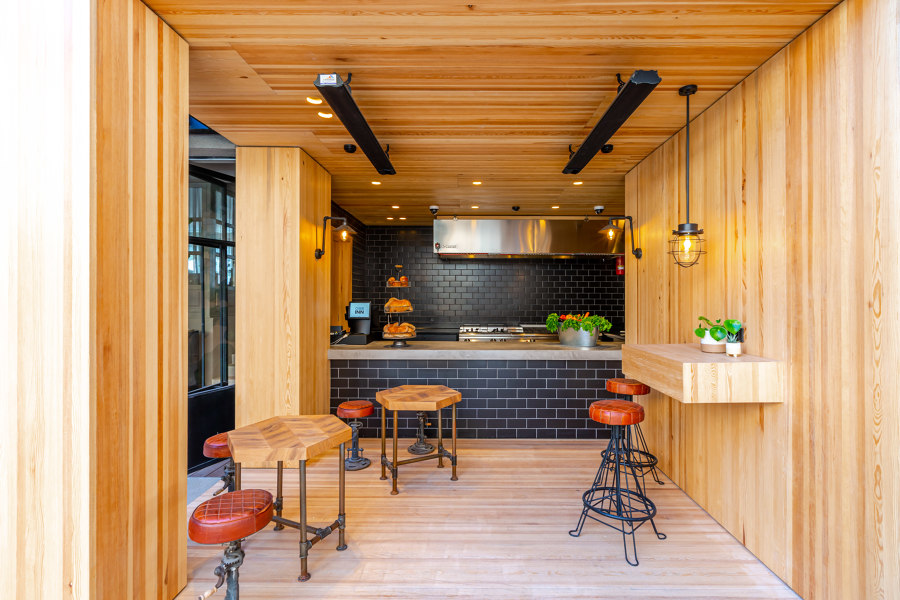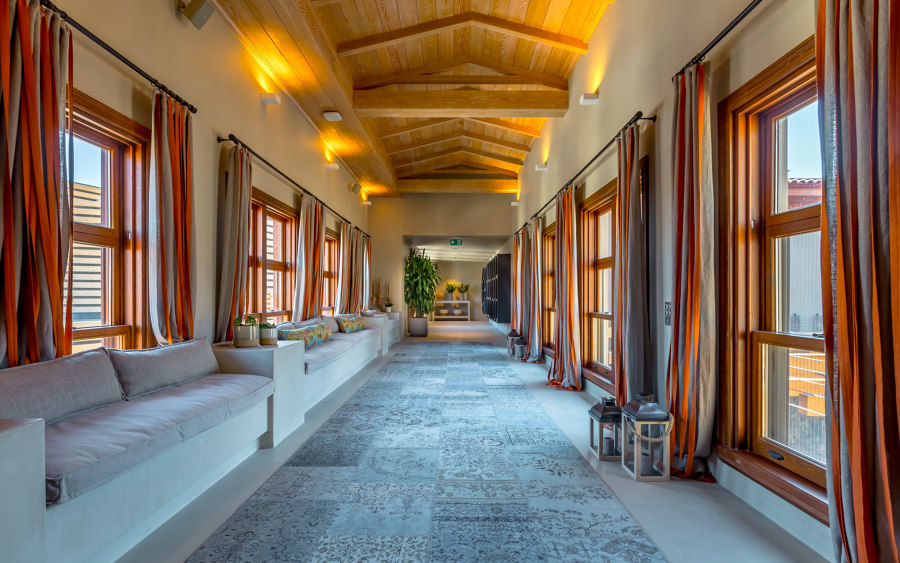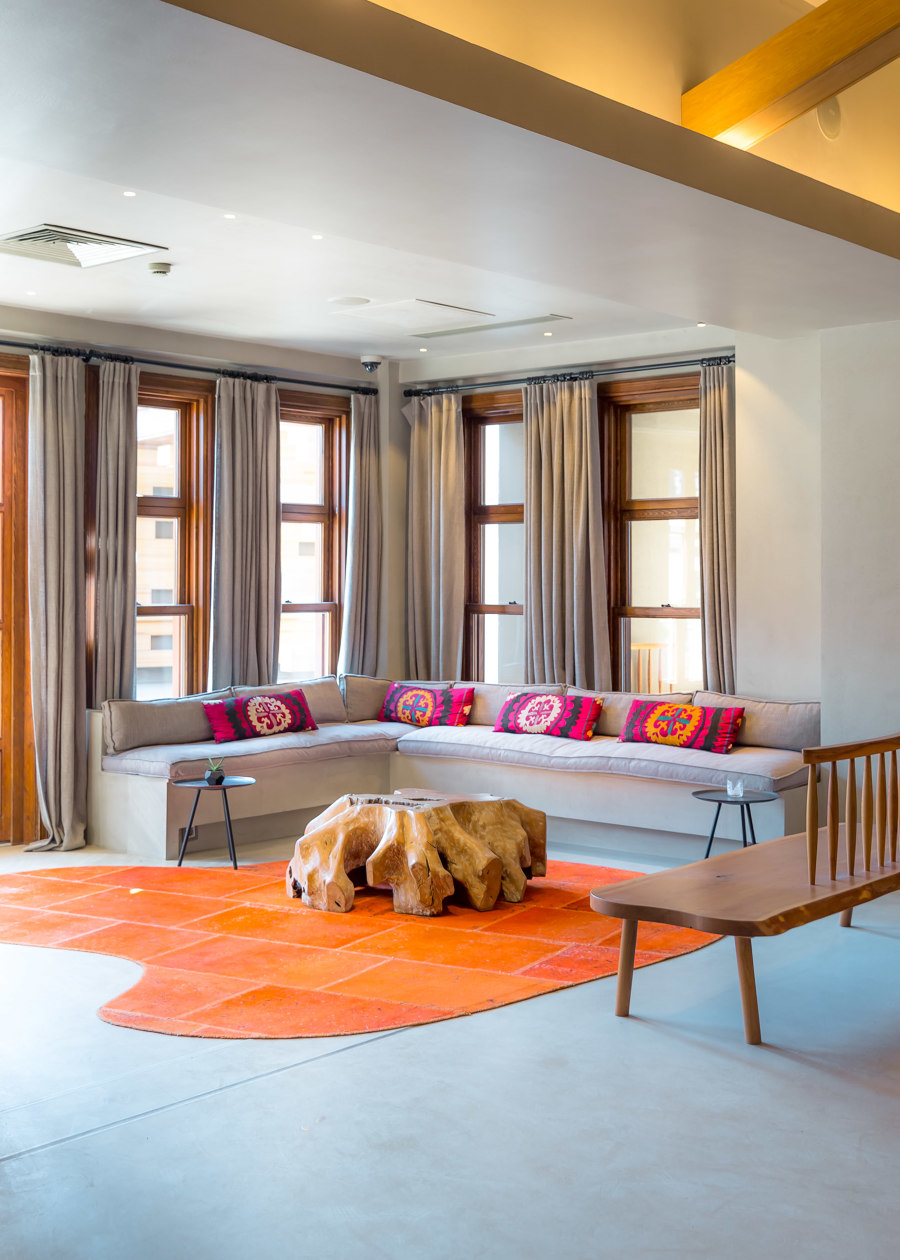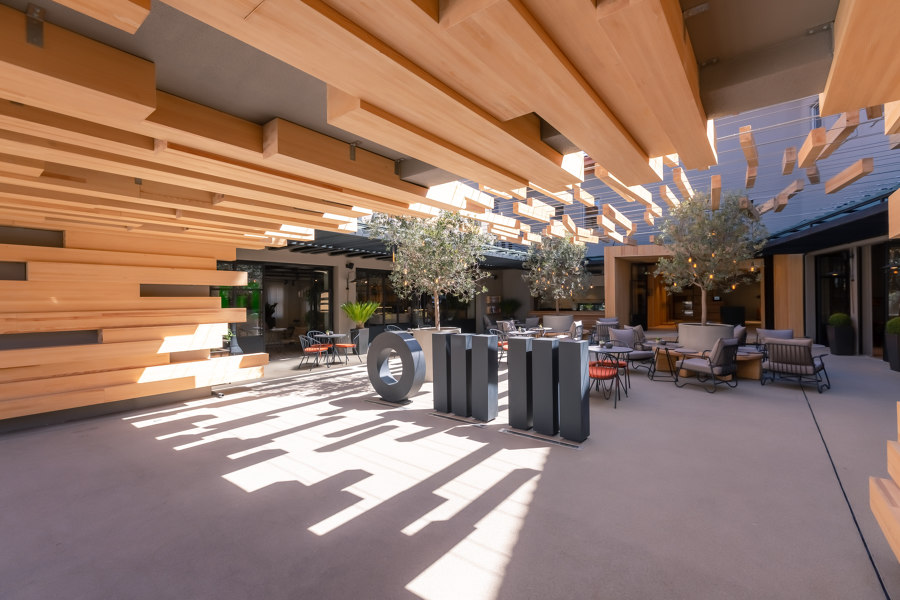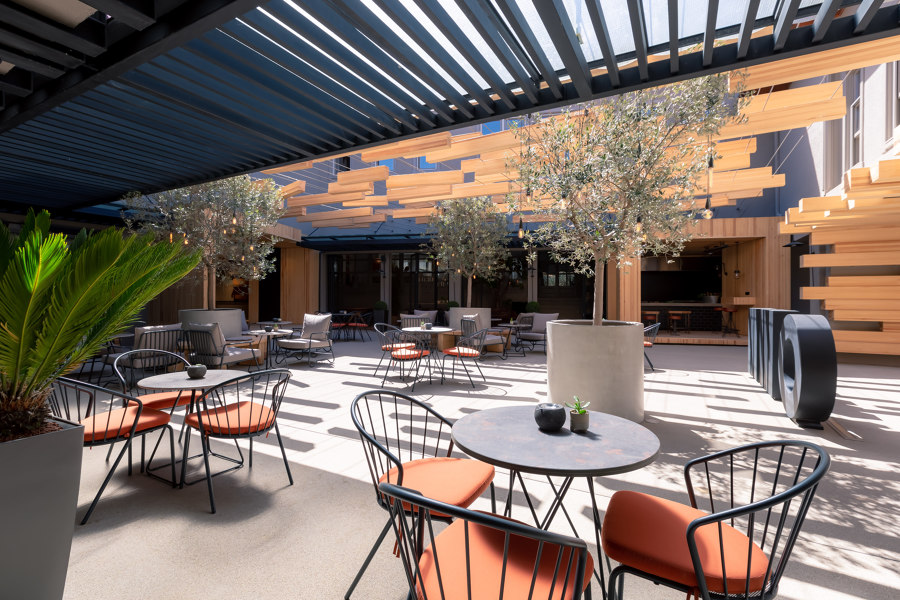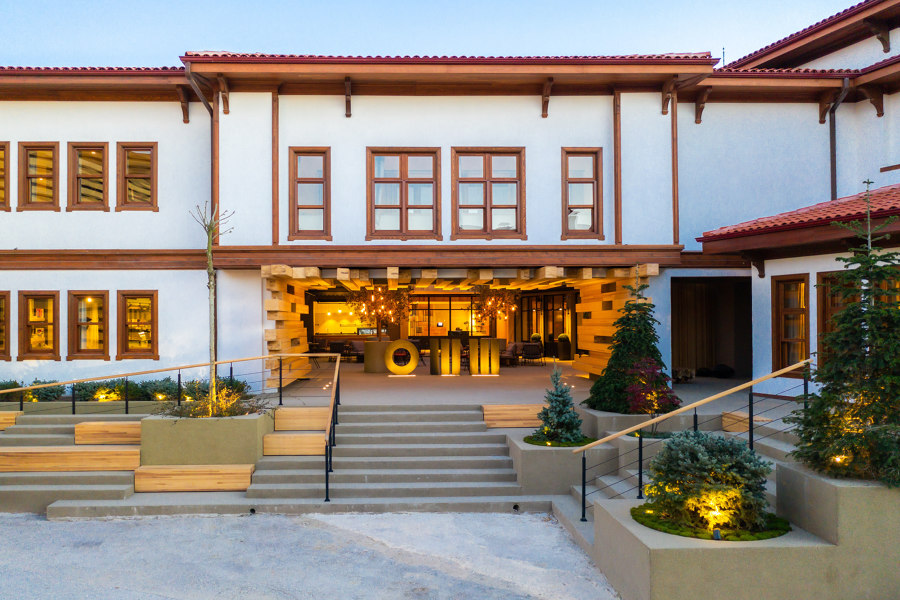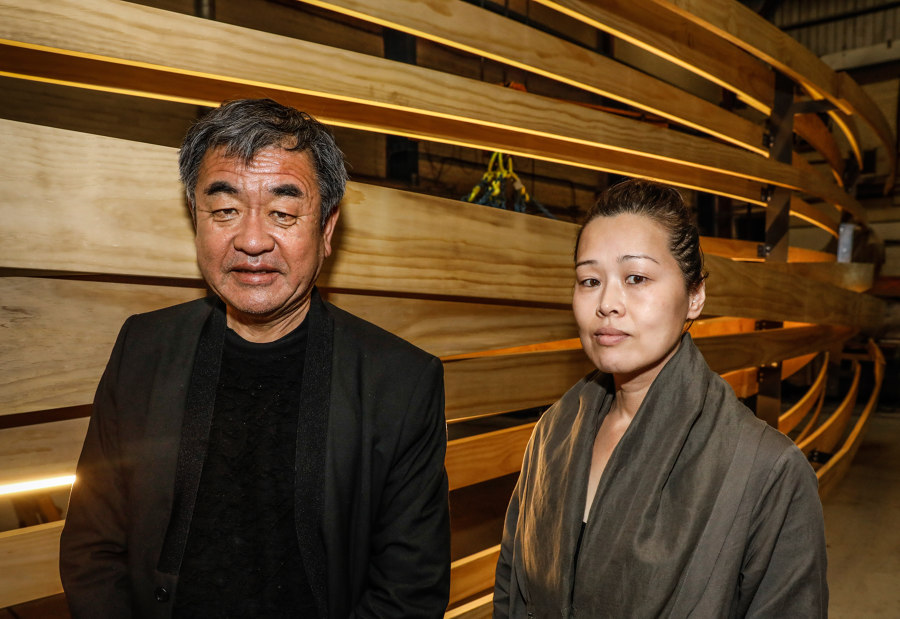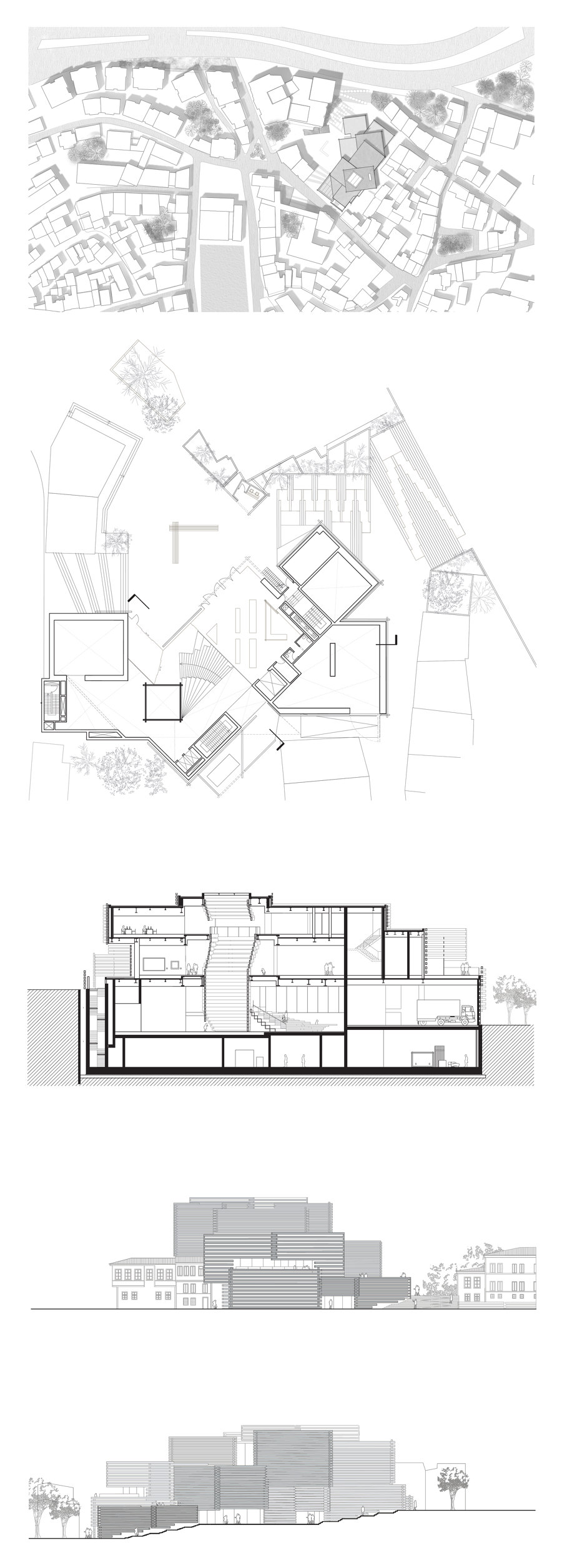OMM – Odunpazari Modern Museum, a major new museum and distinctive architectural landmark by Kengo Kuma and Associates celebrates its public opening. Founded by art collector and businessman Erol Tabanca, the museum is the first of its kind in Eskisehir, a university city in north west Turkey.
OMM’s innovative design, by the acclaimed Japanese architects behind the new V&A Dundee in the UK, provides a bright and spacious new home for the 1,000-piece collection of modern and contemporary art housed inside the museum. With its stacked timber design, inspired by the surrounding streetscape of Odunpazari and its history as a timber trading market, the 4,500m2 museum stands as a new landmark that reconnects the town with its heritage, and as a progressive cultural development for Eskişehir and the Central Anatolia region at large.
Erol Tabanca , Founder of OMM, said: “ Today’s opening marks the culmination of a visionary process for everyone involved. We are delighted to reveal this unique building, the collection and our exciting inaugural presentations to the community here in my hometown of Eskisehir and to visitors from around the world.”
Kengo Kuma, principle of Kengo Kuma and Associates, and Yuki Ikeguchi , the partner leading the project, said: "The idea for OMM was to use architecture to create a link between people and art. We were deeply inspired by the history, culture, people and streetscape of Odunpazari, and we wanted the building to resonate on many levels. We hope that the museum will breathe new life into Eskisehir and become a central and inviting meeting point for the city.”
Idil Tabanca , Chairperson and Creative Director of OMM, said: “ The opening of OMM marks the beginning of a new era of collaboration and innovation in the university city of Eskisehir. We are opening up the doors of the iconic new building to create an institution that will be a stepping stone for young artists. I don’t see OMM as a museum – it’s a platform, a bridge, for young creatives to have their voices heard .”
Largest Installation to date by Bamboo ‘Master’ Artist Tanabe Chikuunsai IV
At the museum’s opening ceremony on Saturday 7 September, which was attended by important international figures including Kengo Kuma and Yuki Ikeguchi, Japanese 'master' bamboo artist Tanabe Chikuunsai IV put the final touches to his ever largest installation, standing at over 6x8 metres. The new commission, which is the most recent piece to join OMM’s evolving collection of modern and contemporary art, was deeply inspired by Odunpazari and its inhabitants, who are represented as one of five interwoven strands along with the four elements: Earth, water, air, fire. Renovating an ancient Japanese craft, the work was made entirely from recycled ‘Tiger Bamboo’ that's unique to one mountain in Kochi, Japan.
Digital Art Brings Home Important Environmental Message
As part of the opening presentation, British digital art collective Marshmallow Laser Feast are showcasing two immersive installations (until 7 December) – Treehugger and In the Eyes of the Animal – both of which carry an important environmental message: that the protection and regeneration of the Earth’s ecosystems is fundamental to our collective futures.
Treehugger, recently awarded Tribeca Film Festival’s Storyscapes Award for innovation in immersive storytelling, is the first chapter in what MLF plans to become a virtual archive of rare and endangered trees. The ultimate aim of the project is to assist conservation by encouraging people to connect with the natural world and feel compelled to protect it. In the Eyes of the Animal, originally created and set in Grizedale Forest in the Lake District, UK, takes users on a fascinating journey that allows them to embody various animals as they traverse the landscape, flying above the forest canopy and coming face-to-face with high-definition critters.
In an age where technology is said to disconnect people from the natural environment, Marshmallow Laser Feast uses cutting-edge technology such as virtual reality, aerial 360° drone filming, LiDAR and CT scanning to highlight the invisible but fundamental connections and dependence between humans and the natural world.
First Exhibition Puts Turkish Artists in the Spotlight
OMM’s ambitious exhibition programme opens with ‘ Vuslat ’, curated by Turkish curator Haldun Dostoğlu, which features a selection of over 100 works by 60 leading artists predominantly from Turkey including Bedri Rahmi Eyüboğlu, Canan Tolon, Erol Akyavaş, İlhan Koman, Ramazan Bayrakoğlu, Sinan Demirtaş and Tayfun Erdoğmuş.
‘ Vuslat ’, which loosely translates as ‘The Union’, was inspired by three scenes of union: Eskisehir gains its first private modern art museum; Erol Tabanca fulfills his dream of sharing his collection with the public, and the collection - much of which has been behind closed doors for years - is showcased in its entirety for the first time.
Split over three floors, the new museum has a variety of exhibition spaces that will house the permanent collection and host a programme of multidisciplinary exhibitions – many of which will be produced in collaboration with leading curators and creatives. The exhibition programme will be complemented by a dynamic public programme, offering seminars, artist talks and workshops.
Odunpazari Modern Art Museum is to exhibit the owner’s collection of Turkish modern art. The Museum is planned in the city of Eskisehir where the owner was born and raised. The project is to realize the owner’s ambition to promote Turkish art and to make cultural contribution to the city of Eskisehir. Eskisehir is known as university town where young population is large and the city has lively and active atmosphere.
The site is in the area called Odunpazari. It is situated at the threshold of newly developed urban area and small scale town scape of traditional Ottoman wooden houses. These wooden house, with cantilevered volume at upper level, were built in lines along the meandering small streets that makes the street scape and walk though experience quite unique and unexpected.
We aim to reflect this street scape quality into the new architectural design of the museum that stands in the urban scale. Our design strategy is to make the volume in aggregation; stacking small boxes to create the urban scale architecture. Stacked boxes at the street level is read in the scale of surrounding houses and it grows taller towards the center of the museum to stands in the urban scape that announces itself as new cultural landmark of the area.
The stacked and interlocked boxes are designed in various sizes to create diverse scales of exhibition space inside. Boxes at the ground level offers opportunities for large scale art works and installation. The boxes get smaller at upper levels to exhibit smaller, intimate scale art works. The central atrium, composed with timber blocks, connects each level to let the natural light through skylight above.
The name of this area “Odunpazari” means “wood market” in Turkish. The exterior envelop of the museum is composed with timber in full extent signifying the history and memory of the place that used to function as market in trading wood.
Design Team:
Kengo Kuma and Associates: Kengo Kuma, Yuki Ikeguchi - Partner in charge; Yasemin Sahiner - Project Architect; Man Wai Yiu and Anteo Taro Sanada
Consultants:
Structural Engineer: SIGMA
Facade Engineer: Ateknik Structural Design
Mechanical engineer: TEMA Engineering and Consulting Trade Ltd.
General contractor: Polimeks Holdings, INC.
Client: Polimeks Holdings, INC.
